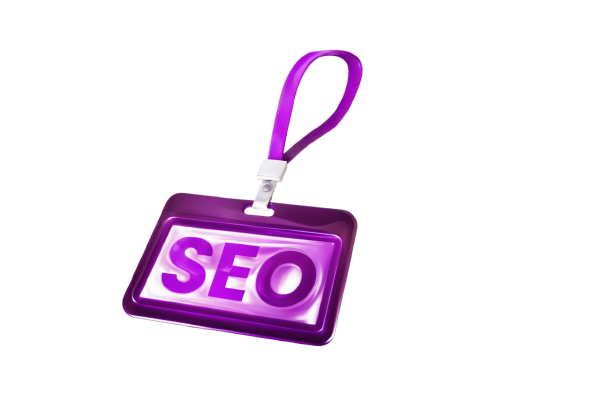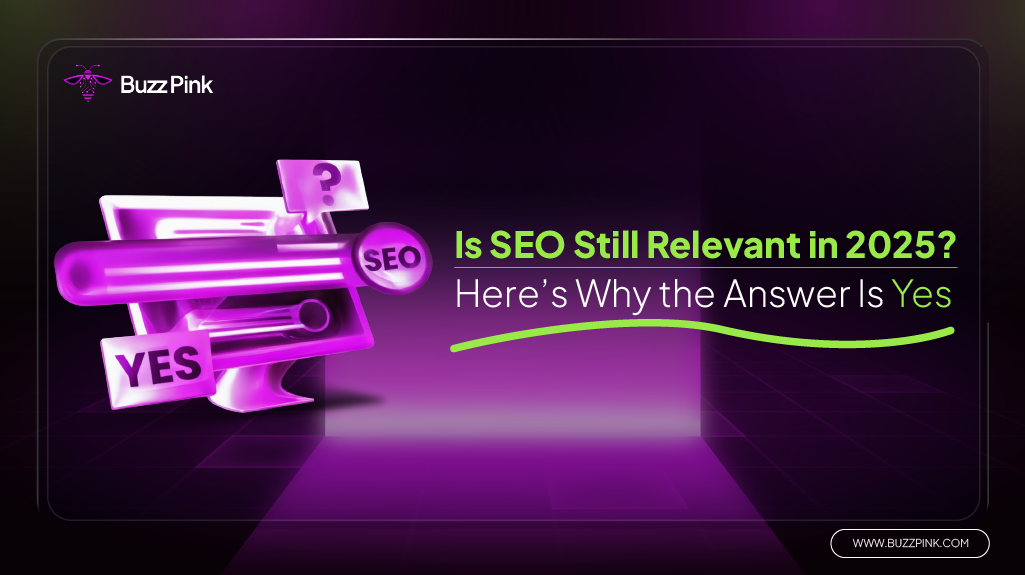There’s been an ongoing buzz in the advertising world about whether SEO is still relevant. Some argue that SEO has lost its place in today’s digital marketing landscape due to constant changes in Google’s algorithm. But is that really true, or just another baseless assumption?
While it’s true that Google’s SEO criteria continue to evolve, that doesn’t make SEO any less essential for businesses. So, is SEO still relevant in 2026? The short answer is yes, absolutely. SEO remains a vital part of digital strategy, and in the following sections, we’ll show you exactly why, backed by solid arguments.
Is SEO Still Relevant in 2026?
 To answer the question again, yes. Search Engine Optimization (SEO) is still a reliable and strategic tool for building trust and promoting your business in search engines. According to recent findings, 83% of users still rely on Google’s search tool rather than using ChatGPT. This clearly shows that even though AI tools like ChatGPT offer quick and conversational answers, they haven’t fully replaced the role of search engines when it comes to finding products, services, or in-depth information.
To answer the question again, yes. Search Engine Optimization (SEO) is still a reliable and strategic tool for building trust and promoting your business in search engines. According to recent findings, 83% of users still rely on Google’s search tool rather than using ChatGPT. This clearly shows that even though AI tools like ChatGPT offer quick and conversational answers, they haven’t fully replaced the role of search engines when it comes to finding products, services, or in-depth information.
Even though we know Google’s algorithm is constantly evolving and its criteria for ranking content seem to shift every few months, that doesn’t make SEO any less important. Rather, it suggests that we have to continue adapting. The game may change, but the purpose is still the same: landing on the first page. And the more we align our websites with Google’s expectations, whether it’s speed, mobile-friendliness, or content structure, the higher the chances we have of being discovered.
-
Most People are Still Using Search Engines
Just when was the last time you googled something up on the web? You’re likely to have used Google. In actual, Google manages far more than 3.5 billion searches per day. There’s a good chance that someone among those numbers is looking for the product or service you provide. These numbers aren’t just statistics, they represent real people with real problems looking for solutions right now.
So if you don’t appear in search results, you’re missing out on potential customers every single day. SEO allows your website to appear exactly when people need the solutions you provide. It’s like placing your brand on a digital highway where everyone’s already driving.
-
Good Content Still Requires SEO
Creating good content is not only time-consuming but also requires extensive research, which drains a lot of energy. Imagine going through all of this only to fall short of recognition. So many resources are wasted for nothing. And unfortunately, quality alone doesn’t guarantee visibility on the internet.
You will need SEO to prevent this from happening. SEO allows your content to reach the people who need it the most. It is an excellent tool that will complement your hard work. Furthermore, SEO ensures that your content is not only good for your audience but also optimized to meet Google’s technical and structural standards, increasing your chance of actually getting seen.
-
Proper Keywords Are Still Relevant
In the past, people could simply throw a bunch of keywords on a webpage and instantly rank higher. Today, that technique may result in a penalty, but that does not mean keywords are no longer important. In fact, using the right keywords will attract more qualified traffic, which means people who are genuinely interested. Keywords, when done right, act like signposts for both users and search engines.
For example, instead of trying to rank for a general keyword like “perfume,” you could use a detailed keyword with no more than four words, such as “long-lasting floral perfume.” It is more specific and much more targeted. This small shift in phrasing can make a big difference in reaching the exact audience you want.
-
Google Still Favors Strong Brands
Another reason SEO is still relevant in 2026 is that Google values strong brand identities. Brands that are widely recognized and consistently present online are perceived as more credible and trustworthy, and Google rewards them with higher rankings. In summary, brand strength and SEO go hand in hand.
Branded search volume is a key metric used by Google that indicates how frequently people enter your brand name directly into the search bar. If more people are actively searching for your brand, Google considers this a strong trust signal. It means that people are looking for you rather than a product similar to yours.
Building a Google-trusted brand takes time. It entails creating in-depth and valuable content such as guides, case studies, and educational articles, all of which help you establish yourself as an authority. It also entails obtaining high-quality backlinks through public relations campaigns or media collaborations, as well as maintaining visibility in communities via forums, social platforms, or niche groups. The more consistent and engaged your brand is online, the better Google perceives you.
How to Appeal to Google’s Current Algorithm
 Google’s criteria are changing every month, which can be stressful for business owners. You have to oversee the changes and regularly tweak the website. There are particular considerations you should make to attract visitors according to Google’s current algorithm.
Google’s criteria are changing every month, which can be stressful for business owners. You have to oversee the changes and regularly tweak the website. There are particular considerations you should make to attract visitors according to Google’s current algorithm.
-
Pay Attention to User Experience
Previously, search engines like Google only evaluated a page’s quality based on factors such as keywords, backlinks, and content completeness. However, they have become much more sophisticated. Google now considers user experience to be one of the most important factors when determining a page’s ranking.
Read More: How to Integrate SEO and User Experience for Better Website Performance
This is because Google wants to ensure that when someone clicks on a search result, they not only find the information they are looking for but also enjoy the process of reading it. If your page is slow, difficult to read on mobile, or has a cluttered layout, visitors will likely leave immediately, sending a negative signal to Google.
Google measures the quality of this user experience using a technical metric known as Core Web Vitals. LCP, INP, and CLS are the three most significant indicators for you to keep an eye on.
– LCP (Largest Contentful Paint): measures how long it takes to display a page’s main content (ideally less than 2.5 seconds).
– INP (Interaction to Next Paint): measures how quickly a website responds to a user’s click or tap (target is under 200 milliseconds).
– CLS (Cumulative Layout Shift) evaluates whether page elements shift abruptly during loading (ideally less than 0.1).
These metrics measure how easy it is for users to navigate your website. If you want your website to appear on Google’s first page, make sure it loads quickly, that the design is responsive across devices, and that the layout is consistent from beginning to end.
-
Adjust to the Audience’s Search Intent
Understanding search intent is essential in modern SEO for appearing in the right search results. Google is now much better at determining whether a piece of content truly addresses a user’s needs. If you create content that does not match the search intent, even if the keywords are correct, Google may remove it from the top rankings because it is deemed less relevant.
There are four types of search intent that you should recognize: informative, navigational, transactional, and investigative commercial.
– Informative: Users simply want to know “How to Mine Bitcoin.” Contents suitable for this search intent include a guide, an article, or a video tutorial.
– Navigational: Users are seeking for a particular internet site, such as “[input a website] login.”
– Transactional: Users are ready to purchase and are looking for a location to do so, such as “Buy cheap floral perfume.”
– Investigative commercial: Users compare options before purchasing, such as “best mining hardware.”
Ensure that all content you create is in line with the user’s intentions and needs. If you believe your content does not match the search intent, you can modify it so that Google ranks you higher in the search results.
-
Use Proper Keywords
Keyword research is the primary step in establishing strong SEO strategies. To learn what people are searching for related to your business, use tools such as Keyword Tool, SEMrush, or KeywordsFX. If you understand what they are looking for, you can create content that answers their questions, increasing the likelihood that they will visit your website.
To improve your chances of ranking in search engines, use long and specific keywords. Keywords like this are likely to immediately attract people who are ready to buy. You can use examples such as the one mentioned above.
Avoid trying to use keyword stuffing like inserting the identical keywords multiple times in an unnatural way. Use keywords in page titles, meta descriptions, and important paragraphs in a natural manner. If it feels awkward to read, don’t force it. Remember that current SEO is not only for Google but also for people.
-
Develop Content Beyond Your Website
SEO now displays not only websites on Google, but also responses from TikTok, Reddit, Quora, and other platforms. This shift demonstrates that search behavior is broadening and no longer concentrated on a single platform. As a result, your SEO strategy needs to adapt. If you only focus on Google websites, you could be missing out on a great opportunity to reach a larger audience on a growing platform.
TikTok, for example, enables you to quickly create short, informative, engaging videos with a dynamic visual style, complete with relevant hashtags that can be found through Google searches.
On Reddit, you can share answers or views in subreddits that are relevant to your industry or topic without direct selling by simply providing useful answers under posts containing keywords that people are looking for.
By optimizing websites and social media, you connect more platforms together, and if you can use them all strategically, your brand visibility will skyrocket, even if you don’t rely solely on Google.
-
Target a Specific Niche
Being a know-it-all in today’s SEO world is no longer an effective strategy. Google actually prefers sites that specialize and have expertise in a specific field.
If you need medical information, you’d rather read articles from health websites like the Mayo Clinic or WebMD than random blogs about travel, investing, and cooking recipes, right? Google, too, has a similar mindset. They prefer websites that appear to have a strong sense of presence and special expertise in a specific topic. Sites with a clear niche are typically more trusted, relevant, and easier to position as a reliable source.
As a result, the first step you must take is to identify which niche you truly master and can provide in-depth to the audience. After that, deliver content that solves the segment’s particular concerns. Use highly relevant and long-tail keywords to achieve more targeted searches. By becoming a specialist in your chosen niche, you will not only attract a more targeted audience but also gain the trust of Google’s algorithm.
Read More: Top 10 SEO Agencies in Singapore for You to Consider in 2026
Looking for SEO for Your Business?
 Buzz Pink offers exactly what you’re looking for. With a team filled with experts who know how to spot the right keywords without stuffing to make it work, they ensure your page will land on the first page. They guarantee high click rates that will result in high ROI for your business.
Buzz Pink offers exactly what you’re looking for. With a team filled with experts who know how to spot the right keywords without stuffing to make it work, they ensure your page will land on the first page. They guarantee high click rates that will result in high ROI for your business.
These aren’t just empty promises. To show you they know their game, they successfully brought 30K+ monthly organic traffic to their own website. All of this can only be accomplished by conducting thorough research and audits. That’s why they don’t just take any clients, assuring the quality they provide won’t disappoint.
Zero cash burning, multiple ROI, and swarming customers are the highlights of their service. They also offer a free consultation before the deal, giving your company a chance to test the water. So, don’t hesitate to book them now!
Conclusion
SEO in 2026 is actually far from dying, it’s just constantly improving. Regardless of changes in Google’s algorithm, the core principles of SEO consistently remain solid. Users continue to rely heavily on search engines, and ranking on Google’s first page remains a powerful way to attract new audiences. From building strong brands to using strategic keywords, SEO helps ensure your business gets discovered, builds credibility, and stays competitive in a crowded digital space.
However, succeeding with SEO today requires more than the old tricks. To stay relevant, businesses must adapt to how Google now prioritizes user experience, search intent, and authority within a niche. It’s also important to expand your presence beyond websites alone, tapping into platforms like TikTok, Reddit, and Quora, which are now part of the broader SEO ecosystem.
Kamila Putri is a content strategist and digital marketing expert who helps brands craft messages that resonate and drive results. With a strong foundation in SEO, brand voice, and data-driven strategy, she has produced content that performs, whether it's optimized web copy, lead-generating campaigns, or conversion-focused messaging. At Buzz Pink, she applies this expertise to help clients grow through smart, search-focused digital strategies that engage, inform, and convert.


